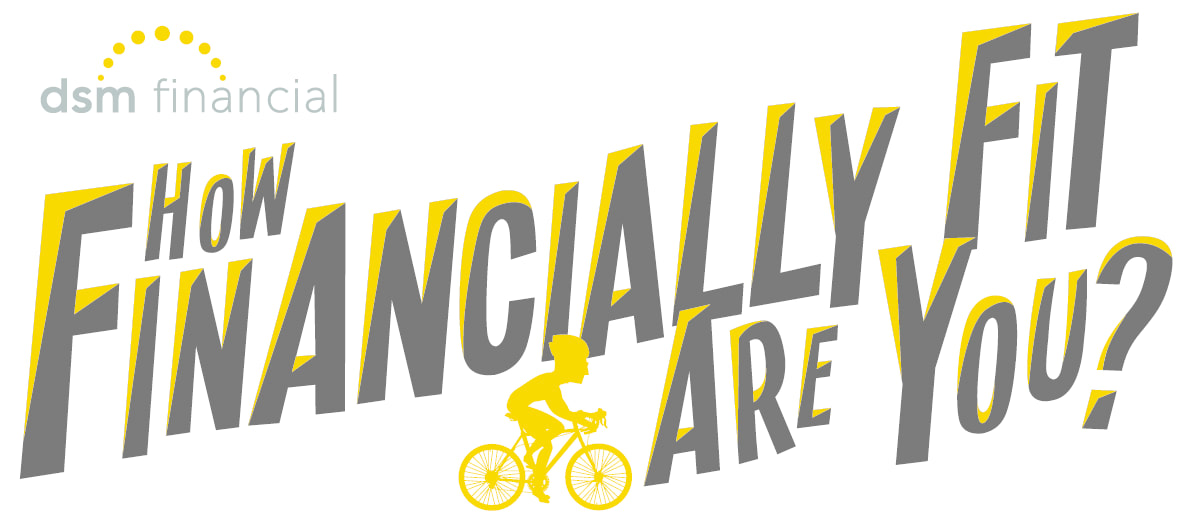|
Think disability couldn’t happen to you? Think again. Disability is more common than many people assume. According to the Council for Disability Awareness, 25 percent of all adults will miss work because of disability at some point in their lives.1 Many employers offer disability coverage through a group benefit plan. In fact, you may think that you’re protected against disability because of your group insurance. However, group coverage often isn’t enough to minimize every threat. It’s possible that you may need a more robust individual disability insurance policy to fully protect yourself. Not sure whether you have the right coverage? Below are some of the key differences between group policies and individual policies. A financial professional can help you analyze your risk and develop a strategy. Cost Group disability coverage is usually less expensive than it’s individual counterpart. The risk is shared and distributed among many people and that minimizes the cost to each person. It’s also possible that your employer may pay some or all of the premiums. However, individual policies and group policies can’t always be compared evenly. Individual policies often have more robust protection. They may have different elimination periods or benefit amounts. You can often design a long-term disability policy to meet your needs and budget, so it may not be as costly as you expect. Benefit Amount Group disability policies usually pay your benefit as a fixed percentage of your income. While the benefit may be helpful, it’s unlikely to fully replace your income. It’s not uncommon for group plans to replace only half or 60 percent of income. Many group plans also have a maximum benefit that you cannot exceed, even if your income would generate a higher amount. With an individual policy, you may be able to receive a higher benefit amount. For instance, some may pay up to 80 percent or even 100 percent of your income as a benefit should you become disabled. Portability One of the biggest challenges with any employer-based insurance coverage is that the protection is tied to the job. If you leave your job, you lose the coverage. And there’s no guarantee* that your new employer will have a similar benefit. An individual policy stays with you, no matter where you work. As long as you pay the premium, you keep your coverage. Benefit Eligibility Perhaps the biggest distinction between group policies and individual policies is the way disability is defined. Many group policies cover only total disability or have an “any occupation” disability definition. That means you’re defined as disabled only if you can’t work in any occupation. With an individual policy, you can choose an “own occupation” definition. That means you simply have to be too disabled to work in your job, not any potential job. This is helpful if you work in a highly skilled field. For instance, if you’re a surgeon and injure your hand, you may not be able to work in your field even if you could perform other jobs. In that example, you would still get your benefit from an individual policy, but you may not get it from a group policy. Ready to protect yourself against disability? Let’s talk about it. Contact us at DSM Financial. We can help you analyze your risk and develop a plan. Let’s connect soon and start the conversation. 1http://disabilitycanhappen.org/disability-statistic/ *Guarantees, including optional benefits, are backed by the claims-paying ability of the issuer, and may contain limitations, including surrender charges, which may affect policy values. Licensed Insurance Professional. This information is designed to provide a general overview with regard to the subject matter covered and is not state specific. The authors, publisher and host are not providing legal, accounting or specific advice for your situation. By providing your information, you give consent to be contacted about the possible sale of an insurance or annuity product. This information has been provided by a Licensed Insurance Professional and does not necessarily represent the views of the presenting insurance professional. The statements and opinions expressed are those of the author and are subject to change at any time. All information is believed to be from reliable sources; however, presenting insurance professional makes no representation as to its completeness or accuracy. This material has been prepared for informational and educational purposes only. It is not intended to provide, and should not be relied upon for, accounting, legal, tax or investment advice. This information has been provided by a Licensed Insurance Professional and is not sponsored or endorsed by the Social Security Administration or any government agency. 18185 - 2018/10/22
0 Comments
The year is quickly drawing to a close. You may be busy wrapping up projects at work, planning your holidays, or even thinking about resolutions for 2019. This is also a great time to review your financial strategy. You can use this time to review the past year and identify areas for adjustment in the coming year. Below are a few important questions to consider as you review your retirement strategy. If you haven’t reviewed your strategy in some time, now may be the right time to do so. A financial professional can also help you look at your strategy with fresh eyes and identify areas for change. How much should you contribute next year? Do you use a 401(k) plan to save for retirement? If so, you’re not alone. The 401(k) is a popular and effective savings vehicle because it allows for tax-deferred growth and employer contributions, both of which can help you accumulate retirement assets. In 2019 the maximum 401(k) contribution increases to $19,000.1 If possible, look at your budget and see if you can increase your contributions. Even a small increase can have a big impact over time. You also may want to contribute to an IRA. You can contribute up to $6,000 to a traditional or Roth IRA.1 An IRA can offer additional opportunity for tax-deferred growth, along with other tax-favored treatment. Your contributions to a traditional IRA could be tax-deductible. Withdrawals from a Roth IRA after age 59½ are tax-free. Contributions to an IRA could help you reach your retirement savings goal. What’s the right allocation for you? It’s natural to become more conservative in your investment approach as you get closer to retirement. You have less time to recover from a market downturn. You may have less tolerance for risk and volatility. Discuss your allocation with your financial professional to see if you should take a more conservative approach. If you haven’t adjusted your allocation in several years, it may be time to shift to a more conservative strategy. You also may want to consider an annuity as part of your planning. Annuities offer a variety of ways to minimize risk. Some offer downside protection against loss and predictable interest payments. Others offer a guaranteed* lifetime income stream in retirement, regardless of market performance. Your financial professional can help you determine whether an annuity is right for you. Are you exposed to any risks? One financial emergency could be all it takes to upend your retirement strategy. You could face disability or significant medical costs. A job loss could disrupt your ability to save. Fortunately, you can use insurance to protect against many risks. Take a look at your protection strategy to see if there are any gaps. Do you have sufficient life insurance to protect your family in the event of your death? Are you protected against long-term disability? If you’re approaching retirement, have you considered how you might pay for future long-term care costs? Again, a financial professional can help you answer these questions and develop a strategy. Ready for your year-end review? Let’s talk about it. Contact us today at DSM Financial. We can help you analyze your needs and develop a strategy. Let’s connect soon and start the conversation. 1https://www.irs.gov/newsroom/401k-contribution-limit-increases-to-19000-for-2019-ira-limit-increases-to-6000 *Guarantees, including optional benefits, are backed by the claims-paying ability of the issuer, and may contain limitations, including surrender charges, which may affect policy values. Licensed Insurance Professional. This information is designed to provide a general overview with regard to the subject matter covered and is not state specific. The authors, publisher and host are not providing legal, accounting or specific advice for your situation. By providing your information, you give consent to be contacted about the possible sale of an insurance or annuity product. This information has been provided by a Licensed Insurance Professional and does not necessarily represent the views of the presenting insurance professional. The statements and opinions expressed are those of the author and are subject to change at any time. All information is believed to be from reliable sources; however, presenting insurance professional makes no representation as to its completeness or accuracy. This material has been prepared for informational and educational purposes only. It is not intended to provide, and should not be relied upon for, accounting, legal, tax or investment advice. This information has been provided by a Licensed Insurance Professional and is not sponsored or endorsed by the Social Security Administration or any government agency. 18184 - 2018/10/22 Long-term disability is an extended inability to work due to a physical condition. Disability can be caused by a broad range of medical issues like accidents, chronic pain and injuries, serious illnesses, and much more. If you suffer a disability and are unable to work, you could face steep medical bills along with the burden of funding your expenses while not receiving a paycheck.
You can minimize the financial risk of disability by using long-term disability insurance, which pays you a monthly benefit should you ever become physically unable to work. You can use the monthly benefit to pay bills and replace your lost income. The amount of the monthly benefit is often calculated as a percentage of your salary. Below are a few questions to ask as you shop for disability insurance. All of these questions involve features that impact the policy’s premium. If you can’t answer these questions, you may want to do more research before you commit to a policy. |
Archives
July 2020
Categories
All
|
Mike Moller
DSM Financial
DSM Financial
3309 109th Street
Urbandale, IA 50322
Urbandale, IA 50322
515.331.1717
[email protected]
[email protected]
Advisory Services offered through Change Path LLC an Investment Advisor. DSM Financial and Change Path LLC are not affiliated. 17283 - 2018/1/17
Licensed Insurance Professional. Respond and learn how insurance and annuities can positively impact your retirement. This material has been provided by a licensed insurance professional for informational and educational purposes only and is not endorsed or affiliated with the Social Security Administration or any government agency.
Licensed Insurance Professional. Respond and learn how insurance and annuities can positively impact your retirement. This material has been provided by a licensed insurance professional for informational and educational purposes only and is not endorsed or affiliated with the Social Security Administration or any government agency.




 RSS Feed
RSS Feed